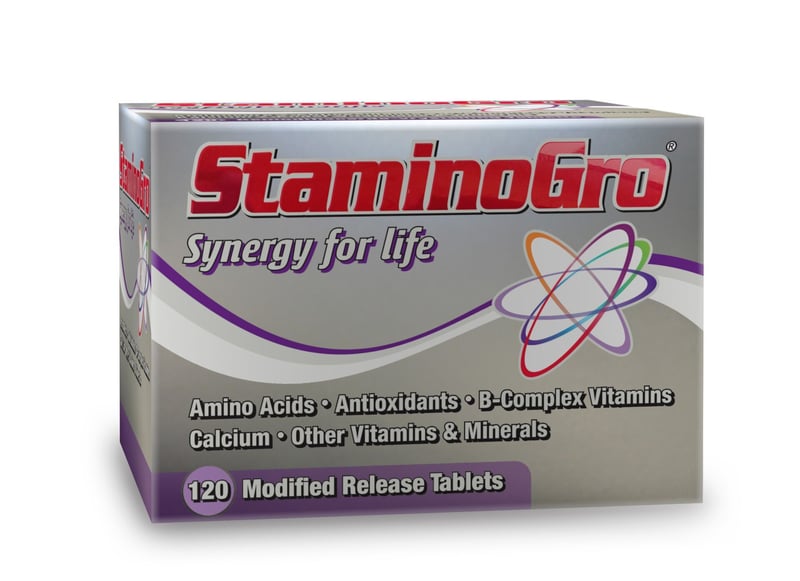Free Radicals are not your Friend
Written by: iNova Pharmaceuticals Save to Instapaper
The role of antioxidants in boosting your health
Free radicals, antioxidants and cell damage are just some of the buzz words around health these days.
We have trillion of cells in our bodies that are constantly facing various hazards. These threats can be due to lack of food or types of infections. A constant threat comes from chemicals called free radicals, which are the waste substances or by-products formed when the body processes food and reacts to the environment. Free radicals are also formed after exercising or exposure to cigarette smoke, air pollution, and sunlight.
When the body cannot process and remove free radicals efficiently, you may suffer from oxidative stress which can harm cells and body function. In fact, oxidative stress has been linked to heart disease, cancer, arthritis, stroke, respiratory diseases, immune deficiency, emphysema, Parkinson’s disease, and other inflammatory conditions.
To counteract the harmful effects of free radicals, the body produces antioxidants which are molecules that fight and neutralise free radicals in your body, to boost overall health.
Antioxidants came into the spotlight in the 1990s when scientists began to understand that free radical damage was associated with the early stages of certain chronic diseases as well as being linked to cancer and vision loss. Some studies showed that people with low intakes of antioxidant-rich fruits and vegetables were at greater risk for developing these chronic conditions, compared to those people who ate adequate amounts of antioxidant rich foods.
Antioxidants come in a range of forms, including from vitamin C, vitamin E, and beta-carotene, as well as minerals like manganese and selenium. There are also other carotenoids and flavonoids and polyphenols, with different antioxidants having different effects on the cells of the body.
For most healthy adults, the antioxidants contained in a healthy diet rich in fruits and vegetables would be enough to combat most of the free radical damage occurring in our bodies. Unfortunately, most people fall far short of meeting recommended daily intakes for vitamins like C and E. Another consideration is that high doses of antioxidant supplements can be harmful, so care needs to be taken if choosing to supplement.
It is for this reason that low-dose supplements may be beneficial if you are deficient in certain nutrients or unable to follow a healthy diet.
A combination supplement such as STAMINOGRO® contains low doses of antioxidants which may contribute to cell protection from free radical damage. These include vitamin c, zinc, Alpha-lipoic Acid, beta-carotene, selenium, glycine and vitamin E.
STAMINOGRO® also contains amino acids, B-vitamins and other essential vitamins and minerals to help with energy, immune defence, well-being and mental vitality, and may also support reproductive health in men and women.
The list of antioxidant rich whole foods is long, varied and delicious, so stock up and speak to your doctor or pharmacist about options for combination supplements for your nutritional needs.
For more information, go to www.staminogro.co.za.
Get new press articles by email
Latest from
- IWISA No.1 launches its Fills Good campaign at the Crescent of Hope NPO
- IWISA No.1’s trailblazing Fills Bold Designer Search closes on 13 July 2025
- Dress Like Your Dad Day Inspires Reflection On Fathers’ Crucial Role In Education And Success
- Jetour South Africa celebrates biggest customer day to be hosted in Africa to date
- FNB App Academy Hits Record 217,000 Registrations, Cementing Its Role in Africa’s Digital Skills Revolution
- Migraines - It's Time to Raise Awareness About This Common and Often Misunderstood Condition
- Community Champions competition ends tomorrow, 31 May, so enter now!
- Don’t Fall Off The South African Labour Law Tightrope
- Celebrating nurses - the heartbeat of South Africa’s health system
- IWISA No 1 Community Champions competition closing date extended
- Frogfoot Rise - Committed To Enhanced Learning Through Connectivity In Underserved Communities
- Flu Season Is Approaching – Is Influenza Really Something To Worry About?
- Fundi wins South Africa Best Employer Brand Award 2023/ 24
- Why iKhokha’s New Slogan is Exactly What South African SME’s Need
- Local Heart Surgeon Honoured With Prestigious International Award Recognizing Work Done To Save Lives Of South African Children Born With Congenital Heart Disease
The Pulse Latest Articles
- Education Is The Frontline Of Inequality, Business Must Show Up (December 11, 2025)
- When The Purple Profile Pictures Fade, The Real Work Begins (December 11, 2025)
- Dear Santa, Please Skip The Socks This Year (December 10, 2025)
- Brandtech+ Has 100 Global Creative Roles For South African Talent (December 9, 2025)
- The Woman Behind Bertie: Michelle’s Journey To Cape Town’s Beloved Mobile Café (December 9, 2025)
